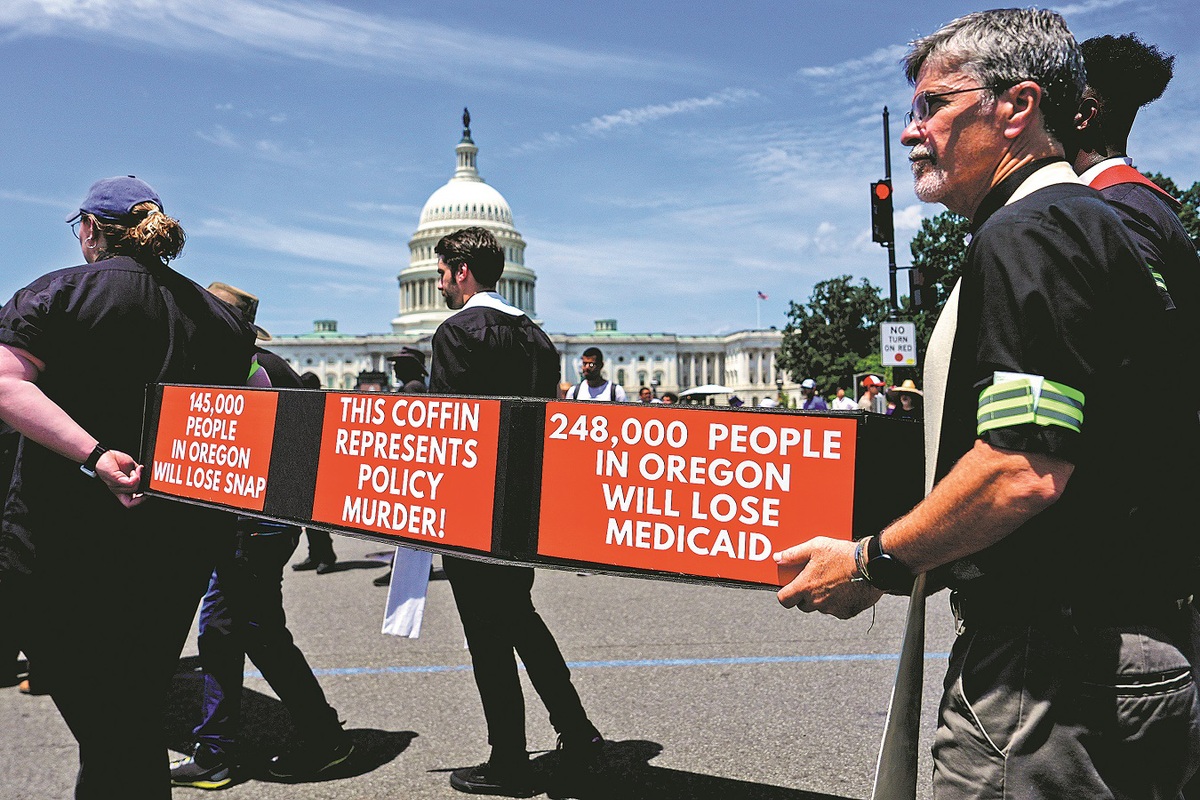United States' 'Big, Beautiful Bill' poised to affect millions of lives
Concerns expressed over wealth inequality, excessive border security, impact on healthcare, national debt


The "One Big Beautiful Bill" — President Donald Trump's proposed mega law that involves billions of dollars to implement his great plans for the United States — is poised to affect millions of lives, for both good and bad, and has attracted heated debate nationally and internationally.
Originally approved by the House of Representatives in May, and passed by a narrow Senate vote on Tuesday, the bill will go back to the House where both major parties must agree on a unified version. The administration hopes to sign the bill into law by July 4.
It covers a broad range of issues, including tax cuts, reductions in social welfare, increased funding for border security and immigration enforcement, as well as ambitious plans for space-based defense, and is projected to add trillions of dollars to the US national debt.
"Trump's so-called 'Big Beautiful Bill'… is the most dangerous piece of legislation in the modern history of our country. It is a gift to the billionaire class while causing massive pain for working families," said Senator Bernie Sanders, a former presidential candidate.
Democratic Senate Minority Leader Chuck Schumer said that "the bill is a big, ugly betrayal of the American people by the Republicans, and the American people will remember it."
While the bill introduces a range of tax deductions such as exempting estate taxes, raising business owner tax deduction, and offering incentive bonuses for having children, it also offers tax breaks for large corporations. It addresses the State and Local Tax deduction that offers more money back for taxpayers.
However, some analysts said Trump's bill will deliver substantial tax cuts to wealthier Americans, while offering little benefit to working class people.
According to a recent analysis by the Urban-Brookings Tax Policy Center, an individual earning $217,000 or more annually would receive an average tax cut of about $12,500. In contrast, those making $35,000 or less would receive an average cut of just $150. People earning between $460,000 and $1.1 million per year (the top 95th to 99th income percentile) would receive an average tax cut of $21,000, boosting their after-tax income by approximately 4.4 percent.























